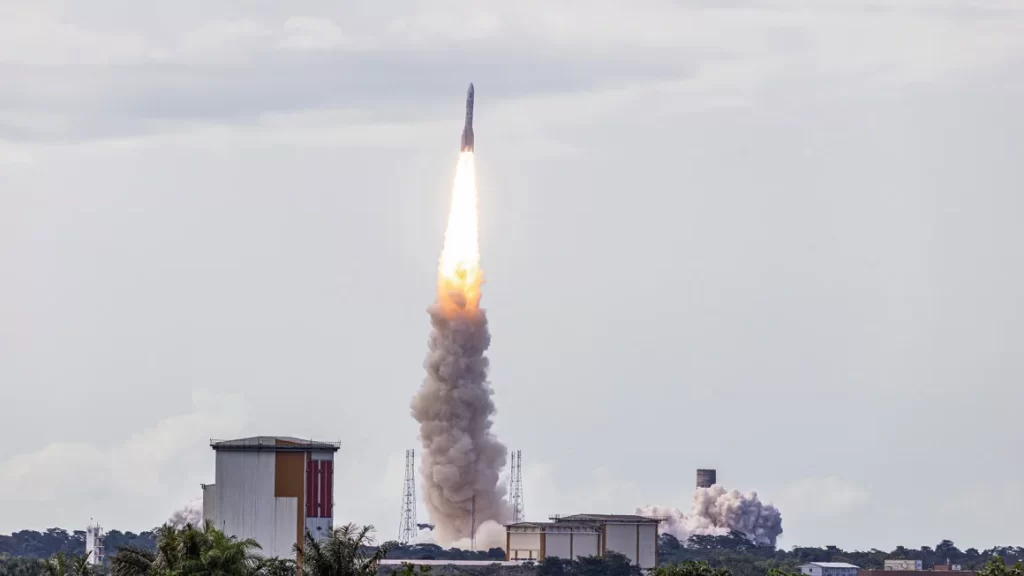The European Space Agency’s member countries have endured a space access predicament as they waited to have a functioning rocket in their toolbox.
But a new rocket, dubbed Ariane 6, just launched on its maiden mission after years of delays and hang-ups in the development process.

If successful, the space agency hopes that the Ariane 6 rocket system may go on to make the space agency more self-reliant and perhaps challenge SpaceX’s dominance in the global market for launching satellites.
The rocket appeared to take off without issue from the Guiana Space Center in Kourou, French Guiana, which lies along South America’s northern tip, after 3 p.m. ET. The European Space Agency’s live coverage kicked off at 2:30 p.m. ET.

That time frame marks a slight delay from an earlier launch window projection before equipment on the ground had revealed the rocket had “a small issue in the data acquisition,” which was resolved by Tuesday morning, according to a social media post from ESA. The detection prompted the mission teams to push back the Ariane 6’s launch window by one hour.
**SpaceX transformed the commercial launch market**
France-based launch service provider Arianespace is the operator of Ariane 6. The aerospace firm was founded in 1980 and is billed as the “the world’s first commercial space transportation company.” Arianespace is part of ArianeGroup, a joint venture between Airbus and Safran that developed and built the powerful rocket.

But the European launch industry has struggled in recent years. The Ariane 6’s predecessor, Ariane 5, flew its final voyage in July 2023, ending the rocket’s 27-year run. Europe’s Vega-C rocket, designed for vaulting small satellites to orbit, has also been grounded since a December 2022 failure.
The commercial launch market, for the record, is far different than it was even two decades ago—mostly due to Elon Musk’s California-based company SpaceX and its relatively affordable Falcon rockets.
The ESA is aiming to bounce back, and—even if it’s unable to compete directly with SpaceX—capture more of the European market.



